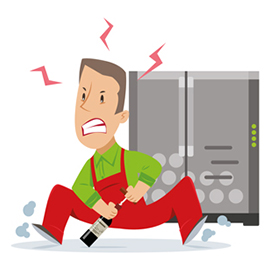


This legislative framework benefits from broad support from European industries, consumers, environmental non-governmental organisations ( NGO s) and Member States ( MS s), because of its positive effects on innovation, increased information for consumers and lower costs, as well as environmental benefits. Although the cost for industry, service and wholesale and retail sectors will increase, it will result in EUR 55 billion per year of extra revenue by 2020. The average household will invest in more expensive and efficient products, but in return saves about € 500 annually on its energy bills by 2020. This is roughly equivalent to Italy's energy consumption in 2010, close to half the EU 20 % energy efficiency target by 2020 and about 11 % of the expected EU primary energy consumption in 2020 5. about 2035 TWh ) of energy savings per year in primary energy in comparison to if there were no measures in place. It is estimated that by 2020, ecodesign and energy labelling regulations will deliver around 175 Mtoe (i.e. Thirdly, it ensures that manufacturers and importers responsible for placing products on the European Union ( EU ) market only have to comply with a single EU-wide set of rules. In the industrial and services sectors, this results in support to competitiveness and innovation. Secondly, it helps consumers and companies to reduce their energy bills. Firstly, this legislative framework pushes industry to improve the energy efficiency of products and removes the worst-performing ones from the market. They are central to making Europe more energy efficient, contributing in particular to the ‘ Energy Union Framework Strategy ’ 3, and to the priority of a ‘ Deeper and fairer internal market with a strengthened industrial base’ 4. Benefits of Ecodesign and Energy LabellingĮcodesign and energy labelling are recognised globally as one of the most effective policy tools in the area of energy efficiency. This impact assessment relates to the review of Commission Regulation (EC) No 643/2009ġ on the ecodesign requirements for household refrigerating appliances and Commission Delegated Regulation (EU) No 1060/2010Ģ on the energy labelling requirements for household refrigerating appliances.ġ.1. Introduction: Political and legal context This report commits only the Commission’s services involved in its preparation and does not prejudge the final form of any decision to be taken by the Commission.ġ. How will actual impacts be monitored and evaluated?Īnnex 5: Minutes of the consultation forumĪnnex 6: Employment and Market in the household refrigerating appliances sectorĪnnex 7: The Ecodesign and Energy Labelling FrameworkĪnnex 8: Existing Policies, Legislation and Standards affecting household refrigerating appliancesĪnnex 9: Evaluation of the Ecodesign and Energy Labelling Regulations for household refrigerating appliances supplementing Regulation (EU) 2017/1369 of the European Parliament and of the Council with regard to energy labelling of refrigerating appliances and repealing Commission Delegated Regulation (EU) No 1060/2010ĩ. laying down ecodesign requirements for refrigerating appliances pursuant to Directive 2009/125/EC of the European Parliament and of the Council and repealing Commission Regulation (EC) No 643/2009 and COMMISSION DELEGATED REGULATION (EU). COMMISSION STAFF WORKING DOCUMENT IMPACT ASSESSMENT Accompanying the document COMMISSION REGULATION (EU).


 0 kommentar(er)
0 kommentar(er)
